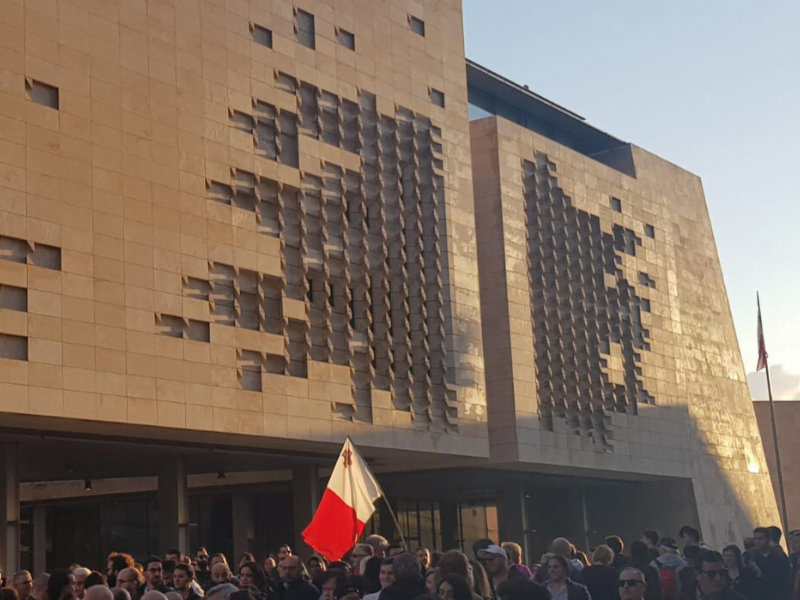It’s not clear whether the recent order instigated by the Office of the Prime Minister for mostly-opposition MPs to start reporting to their government work is a standalone measure or a prelude to a wider move on making parliamentarians fulltime, which has been raised repeatedly since it was put as a recommendation in the report on Malta by the Venice Commission in December 2018.
The Venice Commission had recommended making MPs full time parliamentary employees as part of wider measures designed to bolster Malta’s ailing democracy. The idea is that if MPs dedicate themselves to parliamentary work, they would be better equipped to fulfill their role of scrutinising and initiating laws, as well as make informed input in debates, and hold the executive arm of government to scrutiny.
A parallel recommendation was to wean MPs from any other non-parliamentary role with the government, including engagements in official boards or bodies. The thinking is that you cannot scrutinise the government if you form part of it and, worse still, if you are beholden to the executive for easy and well-remunerated engagements.
The current situation has made a travesty of the role of parliament because virtually all Labour MPs are in the service of the executive. Most of them are an integral part of the executive as ministers or parliamentary secretaries, others are engaged in a consultancy or directorship roles with departments or agencies, and only a few hold no government engagements.
Given these dynamics, as well as the current number of MPs on each side of the divide, parliament is impotent in fully fulfilling its role as one of the pillars of democracy.
The news this week of MPs who rarely turn up to their workplace in the civil service has also exposed parliament to ridicule. It’s hard to expect employees, particularly civil servants, to readily put in a day’s work when these parliamentarians have been exposed for pocketing a salary from the civil service without reporting for work.
Most people cannot see the financial justification of MPs holding a job in the civil service and then being allowed leniency in the day job to perform MP duties. MPs are currently paid around €1,900 monthly from parliament, and they receive a full pension after two terms in parliament. That’s a higher salary than most people earn in Malta who have to put in 40 years of full time work to get a full pension.
Although the consensus among MPs is that their salaries would have to rise substantially if they are expected to be full time MPs, there is no unanimity about the need for full time MPs. In off-the-record discussions The Shift held with various MPs, a variety of views were expressed. Some MPs said that the non-parliamentary work of those who work among people – lawyers, doctors and so on – allows them to better understand people’s problems.
One MP expressed the concern that the performance of MPs would not necessarily improve if they were full time and equipped with an office and staff. He said that a significant number of MPs were only interested in easy gain, focused particularly on being elected for at least two terms to get the full pension. These MPs would still proverbially sleep on the job if they had to be full time. There are MPs at the opposite end of the spectrum as well, motivated and driven by a sense of calling.
Another development on which there is disagreement is the process rolled out last year to swell the number of women MPs by increasing the number of MPs overall. Such positive discrimination in favour of women’s greater participation in politics has not convinced a substantial proportion of MPs, including already-serving women MPs.
Misgivings have also been raised about the prospect of increasing MPs in the process, something that according to detractors – among the most vociferous is ex-MP Franco Debono – would foster greater politicisation and greater nepotism. The number of MPs per capita is already one of the highest in the world, and this creates the kind of familiarity between an MP and constituents that contributes to the culture of tacitly trading favours for votes. It also makes politicians dominant in the social discourse because of their ubiquity – this includes, at community level, local councillors.
On the other hand, given the diminutiveness of a country that has to create the machinery of State by the population of a small city, it is inevitable that the proportion of MPs to population would be high. An additional consideration is that the present situation is already perverse because most of the Labour MPs are part of the executive, compromising their role of scrutinising the executive.
George Hyzler, the Parliamentary Commissioner for Standards, has been highlighting some of these issues, but there has been no holistic, sustained examination of the contradictions and possible fixes that could foster a parliament that fulfils its full role in a democracy.












